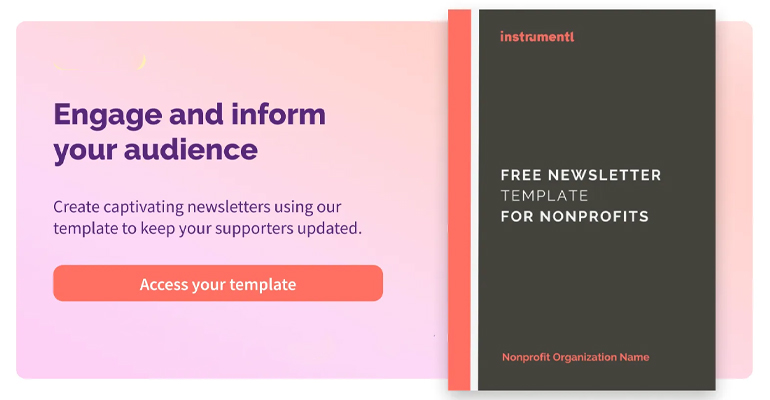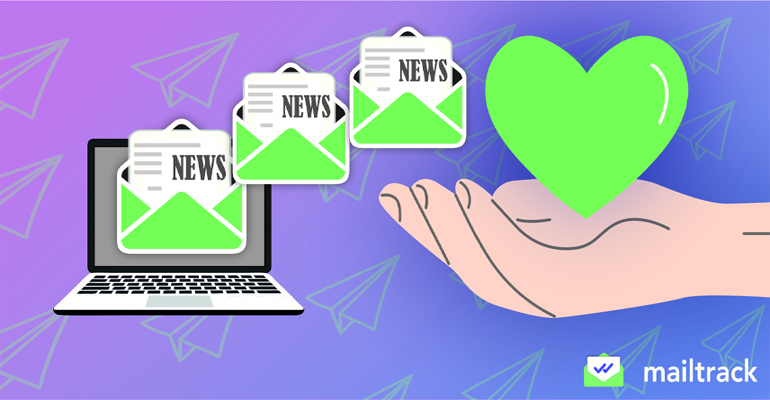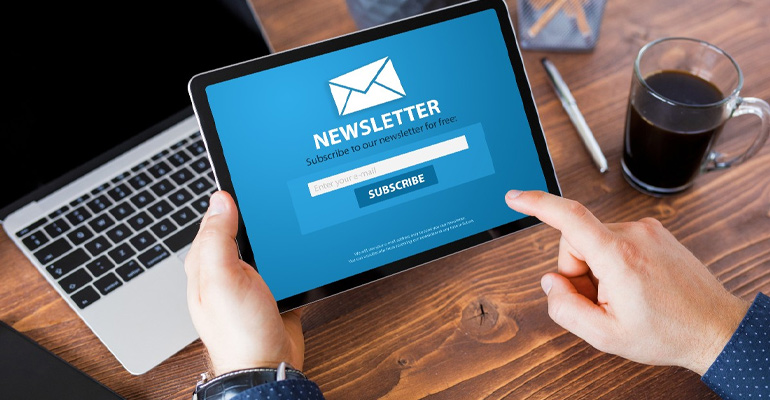Did you know that a well-crafted nonprofit newsletter can boost donor retention by up to 20%? In today’s fast-paced world, nonprofits need effective ways to connect with supporters and drive impact. A compelling nonprofit newsletter is your secret weapon for building relationships, inspiring action, and achieving your mission. This guide will equip you with the essential strategies to create nonprofit newsletters that captivate your audience, drive engagement, and yield tangible results.
1. Know Your North Star: Understanding Your Nonprofit Newsletter Audience
Identify Your Audience
Your nonprofit newsletter’s success hinges on understanding your readers. Who are they? What are their interests and passions? By clearly defining your audience, you can tailor your content to resonate deeply. Knowing your audience helps in creating content that speaks directly to them, increasing the chances of engagement and support. Conduct surveys, analyze your donor database, and segment your audience based on demographics and interests. Read more on audience identification.

Tailor Content
Generic nonprofit newsletters miss the mark. Deliver content that speaks directly to your audience’s needs and desires. Showcase stories that inspire, provide valuable information, and foster a sense of connection. Tailored content shows that you understand and value your readers, which can lead to increased loyalty and support for your cause. Highlight volunteer experiences, donor stories, and the direct impact of contributions. Personal anecdotes and testimonials can make your content more relatable and engaging.
2. Subject Line Supremacy: Crafting Irresistible Opens for Your Nonprofit Newsletter
Importance of Subject Lines
Your subject line is your first impression. A compelling subject line entices readers to open your nonprofit newsletter and explore your content. The subject line should create curiosity, provide value, or offer a clear benefit to the reader. It sets the tone for the rest of your newsletter and can significantly impact your open rates.
Best Practices
Keep it concise, create intrigue, and use strong action verbs. Experiment with different approaches to find what works best for your audience. Personalize subject lines by including the recipient’s name or referencing their previous interactions with your nonprofit. Use emojis sparingly to add a touch of personality and stand out in crowded inboxes. Check out these tips on crafting compelling subject lines.
3. Design Delight: Creating a Visually Stunning Nonprofit Newsletter Experience
Visual Appeal
A visually appealing nonprofit newsletter is more likely to capture attention. Use high-quality images, consistent branding, and ample white space for a clean and professional look. Visual elements can help break up text, making your newsletter more engaging and easier to read. Incorporate your nonprofit’s colors and logo to reinforce your brand identity. Ensure that your design is not cluttered and that important information stands out.

Mobile-Friendly
With the rise of smartphones, ensuring your nonprofit newsletter is mobile-optimized is crucial. Choose responsive templates and optimize images for small screens. Mobile optimization ensures that your newsletter looks great and functions well on any device, which can help increase engagement rates. Test your newsletter on various devices and email clients to ensure compatibility.
Templates
Streamline your design process with pre-designed templates. Consistency in layout and branding reinforces your nonprofit’s identity. Templates can save time and ensure a professional look. Choose templates that align with your brand and make it easy to add your content. Customize templates to fit your nonprofit’s unique style and messaging. Explore nonprofit newsletter templates.
4. Content is King: Delivering Value That Converts in Your Nonprofit Newsletter
Content Types
Offer a variety of content to keep readers engaged. Share success stories, behind-the-scenes glimpses, volunteer spotlights, and expert insights. Diversifying your content can help cater to different interests within your audience. Include updates on ongoing projects, upcoming events, and opportunities for involvement. Educational content, such as how-to guides or informative articles, can also add value for your readers.
Storytelling
Connect with your audience on an emotional level through powerful storytelling. Share personal narratives that highlight your mission’s impact. Stories can make your cause more relatable and inspire readers to take action. Use vivid descriptions and emotional appeals to draw readers in. Highlight the challenges you face and how supporters can make a difference. Feature stories from beneficiaries, volunteers, and donors to showcase the diverse impact of your work.
Call to Action
Clearly state what you want readers to do after reading your nonprofit newsletter. Whether it’s donating, volunteering, or attending an event, make it easy to take action. Use clear and compelling language to guide readers towards your desired outcome. Include links to donation pages, event registrations, or volunteer sign-ups. Make your calls to action stand out visually to draw attention. Learn more about effective calls to action.
5. Consistency is Key: Building Lasting Relationships with Your Nonprofit Newsletter
Regular Schedule
Establish a consistent publishing schedule to keep your audience engaged and anticipating your next nonprofit newsletter issue. Consistency helps build trust and keeps your nonprofit top of mind for your supporters. Choose a frequency that you can maintain, whether it’s weekly, bi-weekly, or monthly. Communicate your schedule to your audience so they know when to expect your newsletter.

Brand Voice
Maintain a consistent brand voice throughout your nonprofit newsletter. This strengthens your nonprofit’s identity and builds trust. Your brand voice should reflect your nonprofit’s values and resonate with your audience. Whether it’s friendly and conversational or professional and authoritative, consistency in tone helps reinforce your brand. Use language that aligns with your mission and speaks to your supporters’ values and aspirations.
6. Personal Touch, Powerful Impact: Personalization and Segmentation in Your Nonprofit Newsletter
Personalization
Make your readers feel special by addressing them by name and tailoring content to their interests. Personalized content can increase engagement and foster a deeper connection with your audience. Use data from your donor management system to personalize greetings, content, and calls to action. Reference past interactions or donations to show appreciation and relevance.
Segmentation
Divide your email list into segments based on demographics, interests, or giving history. This allows you to deliver highly targeted content. Segmentation can improve open and click-through rates by providing more relevant content to each group. Create segments for different donor levels, volunteers, event attendees, and more. Tailor your messages to address the specific interests and needs of each segment. Discover the benefits of email segmentation.
7. Data-Driven Decisions: Analyzing and Improving Your Nonprofit Newsletter
Metrics to Track
Monitor key performance indicators like open rates, click-through rates, and conversion rates to measure your nonprofit newsletter’s effectiveness. Understanding these metrics can help you identify what’s working and what needs improvement. Track the performance of individual campaigns and compare them to identify trends and patterns. Use analytics tools provided by your email marketing platform to gain insights into subscriber behavior.
A/B Testing
Experiment with different subject lines, content, and design elements to optimize your nonprofit newsletter’s performance. A/B testing can help you determine what resonates best with your audience. Test one element at a time to isolate its impact on your results. Use the findings from your tests to make data-driven decisions and improve future campaigns.

Feedback
Seek feedback from your subscribers to understand their preferences and make necessary improvements. Feedback can provide valuable insights into what your audience values and how you can better meet their needs. Use surveys, polls, and direct questions to gather input. Regularly review and act on feedback to enhance your nonprofit newsletter.
Conclusion: Elevate Your Impact with Nonprofit Newsletter Excellence
Recap
By understanding your audience, crafting compelling content, and optimizing your design, you can create nonprofit newsletters that drive engagement and support your mission. Consistency in scheduling, voice, and personalization can build lasting relationships with your supporters.
Final Thoughts
A well-executed nonprofit newsletter is a powerful tool for building relationships, inspiring action, and achieving your nonprofit’s goals. It can enhance donor retention, increase volunteer engagement, and amplify your mission’s impact.
Call to Action
Start implementing these best practices today and watch your nonprofit newsletter become a cornerstone of your nonprofit’s success. The time and effort you invest in creating a compelling newsletter will pay off in increased support and greater impact.
Additional Tips for Your Nonprofit Newsletter
Resources
Explore email marketing platforms like Mailchimp, Constant Contact, or HubSpot for tools and templates. These platforms offer a variety of features to help you create, send, and analyze your newsletters.

Examples
Analyze successful nonprofit newsletters for inspiration and identify elements that resonate with you. Look at newsletters from organizations with similar missions or audiences to gather ideas and best practices. Note the design, content, and engagement strategies that seem most effective. Use these insights to refine your own newsletter approach and continually improve your communications.
By following these guidelines, you’ll create nonprofit newsletters that inform, inspire, and empower your supporters to make a difference. A well-crafted newsletter can become a vital part of your nonprofit’s communication strategy, driving engagement, and helping you achieve your mission.



